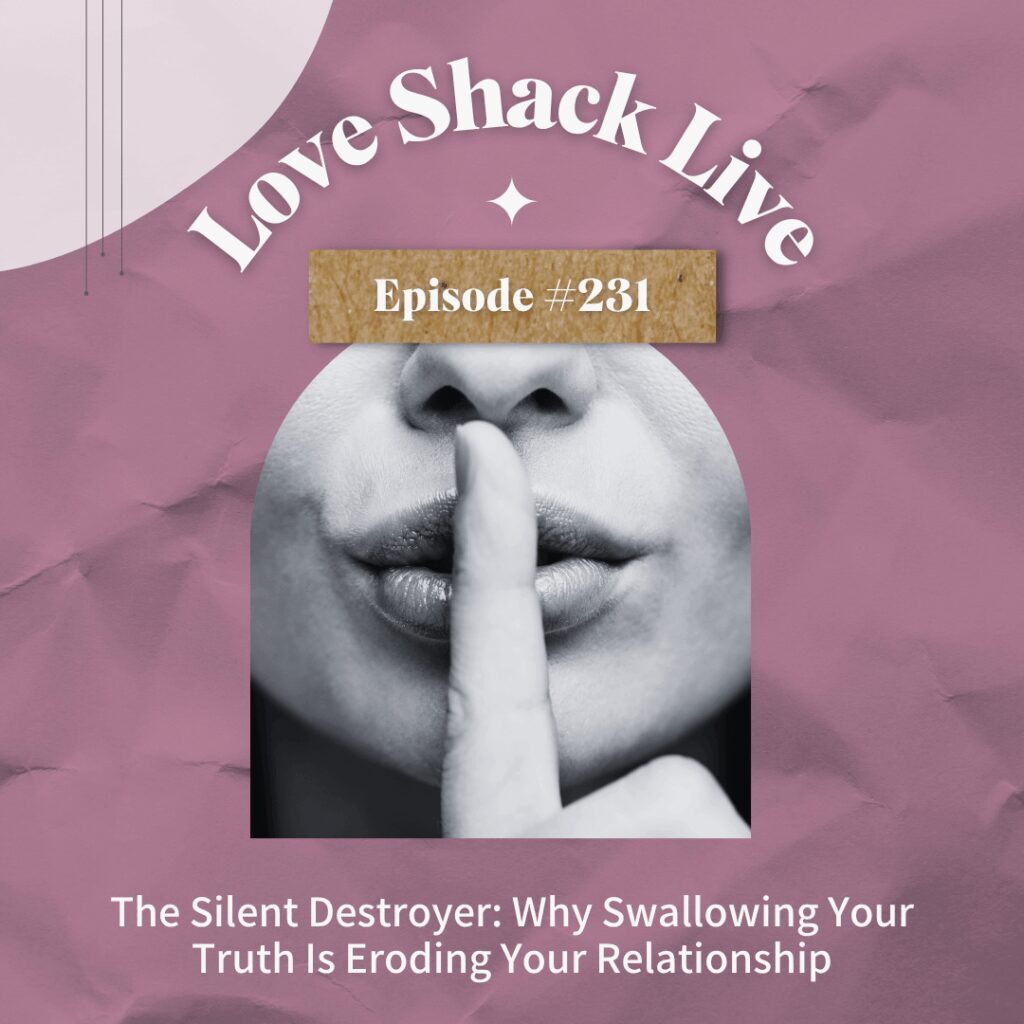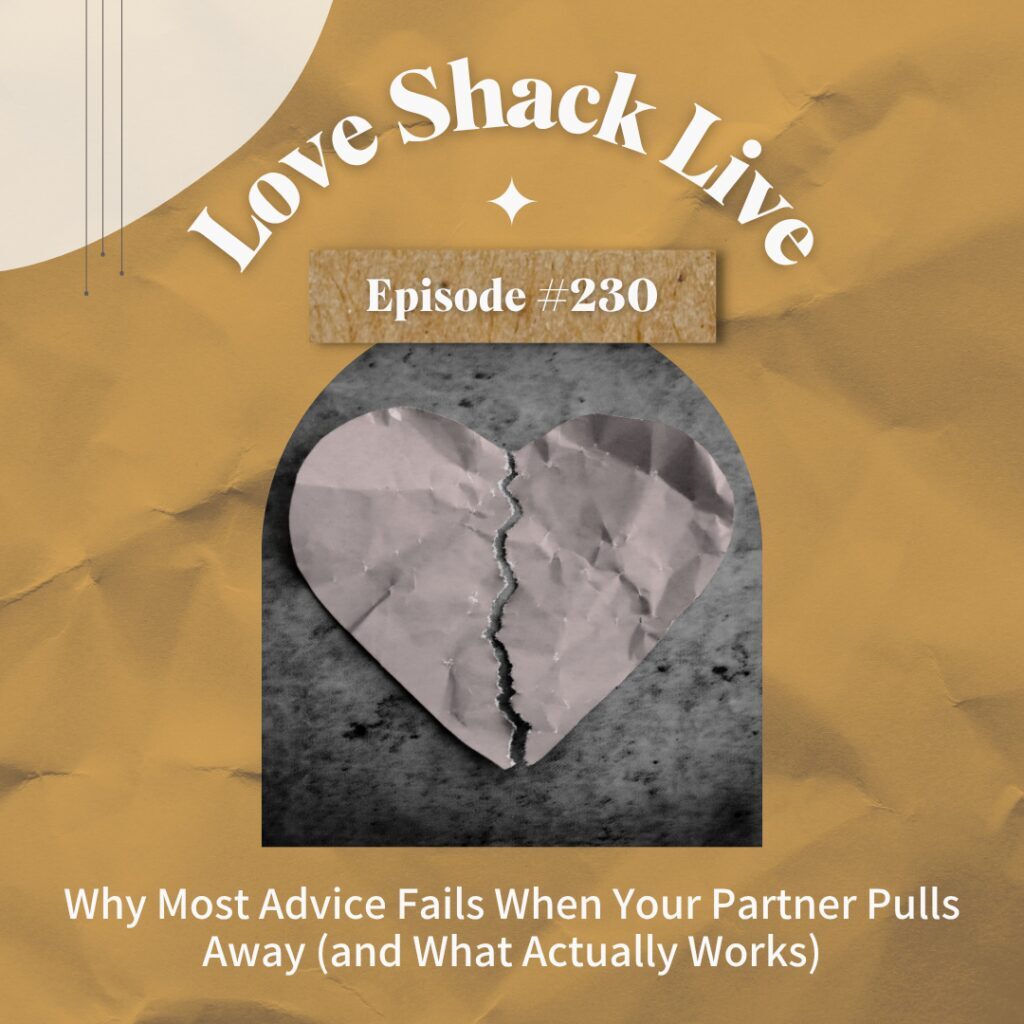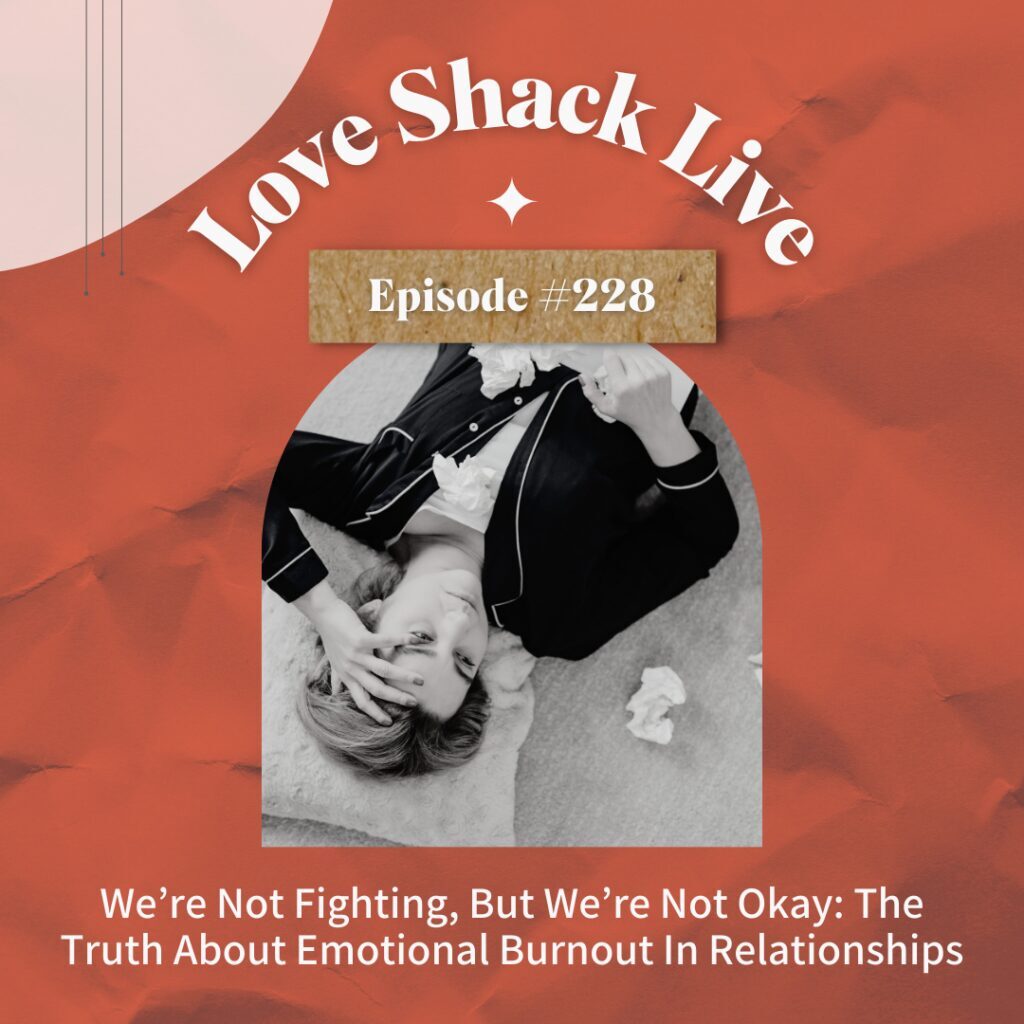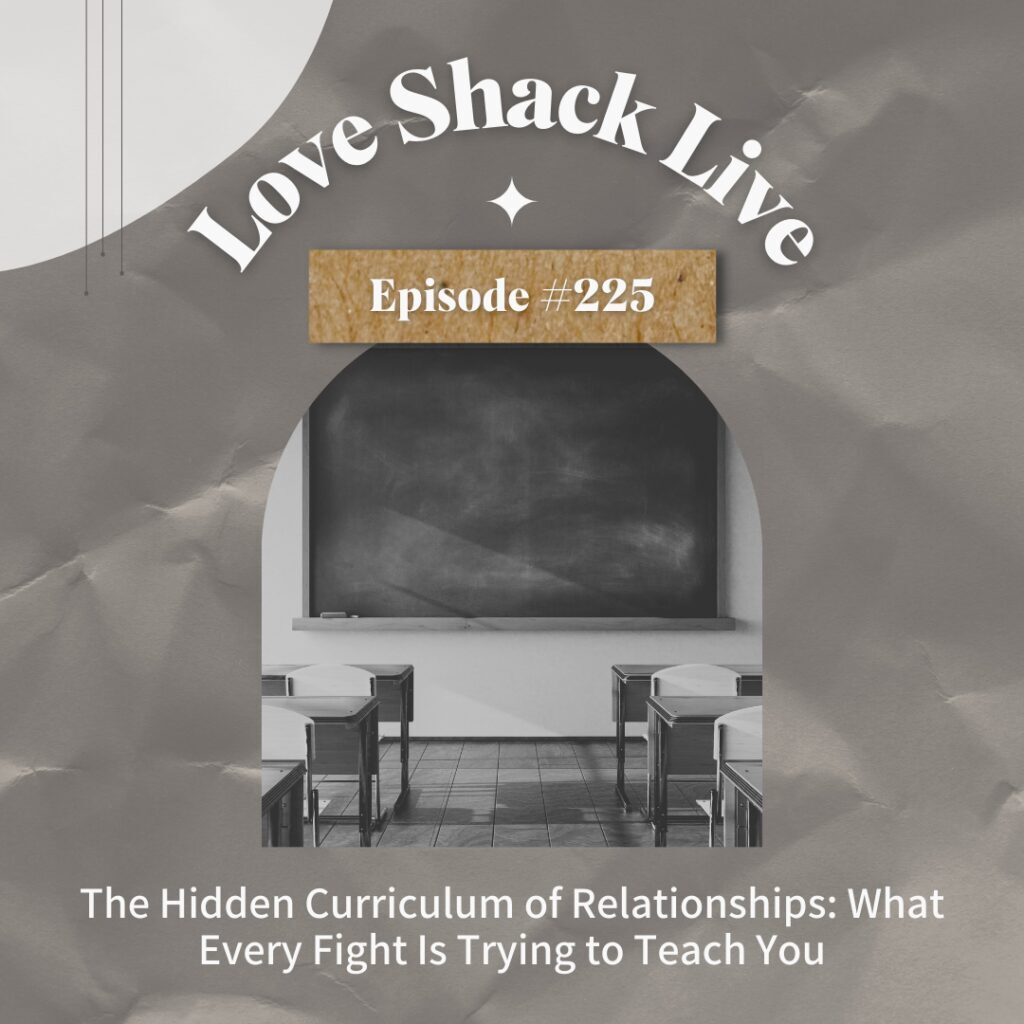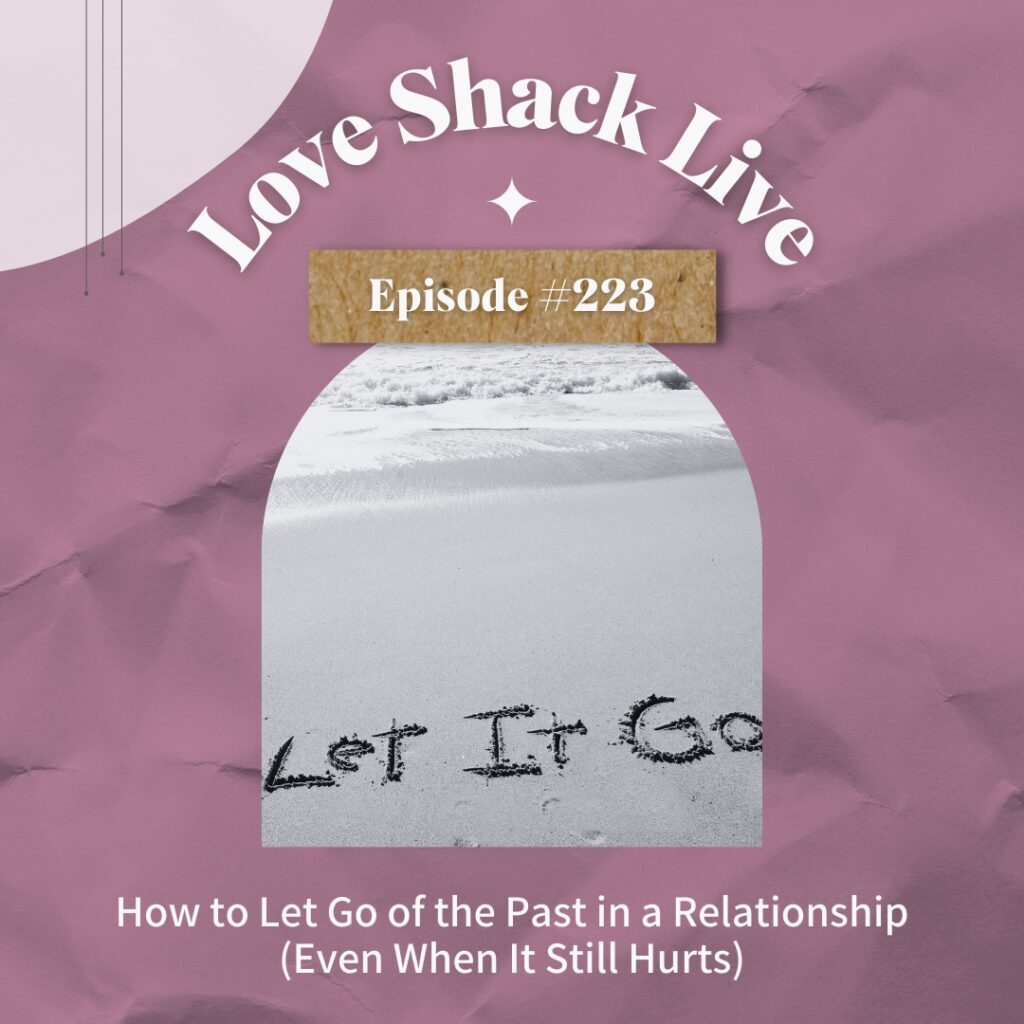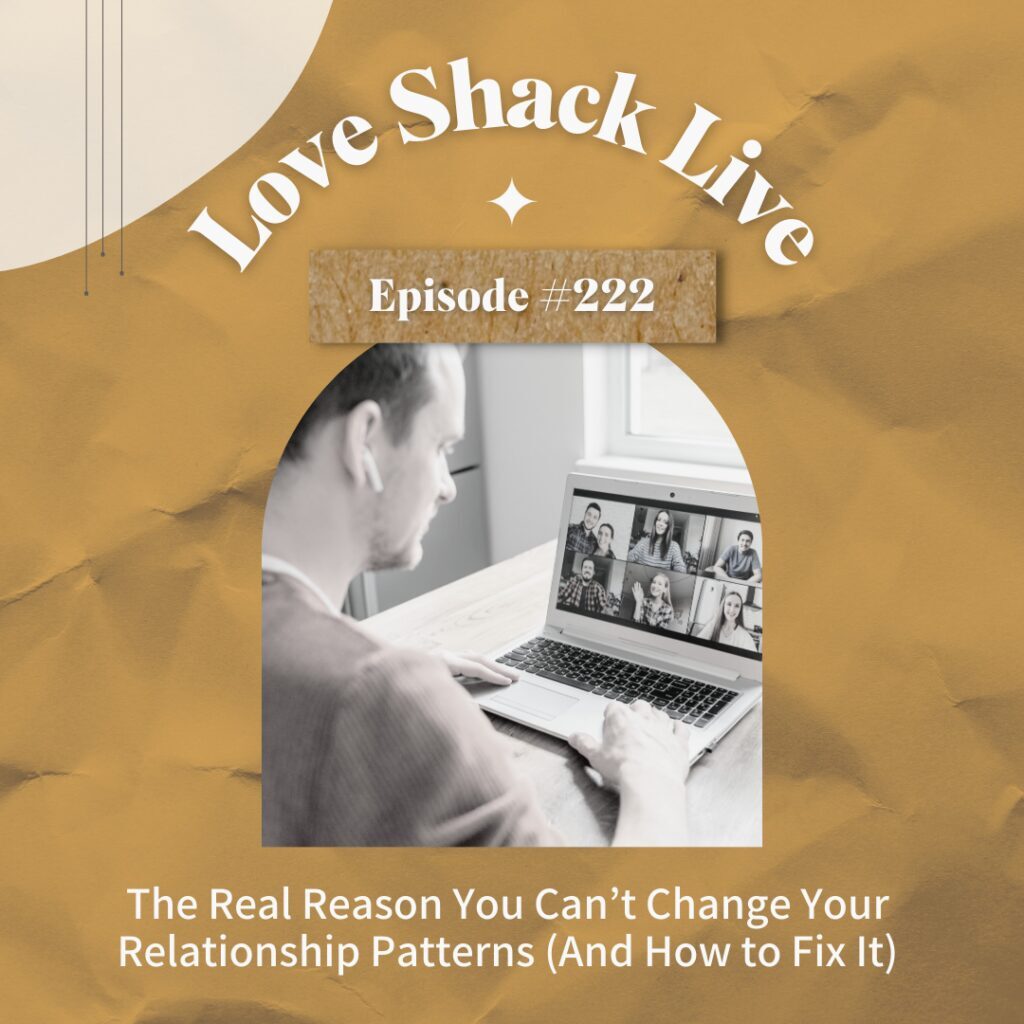#204: Are You Being Manipulated—or Are You the Manipulator?

Manipulation. It’s a word we don’t like to associate with ourselves. But here’s a hard truth: we all engage in it, often without even realizing it. Manipulation is not just a tactic used by villains in movies or toxic individuals; it’s a learned behavior ingrained in us from childhood, family dynamics, and societal norms. It shows up subtly in our relationships and can erode emotional intimacy and trust if left unchecked.
In this episode, we’ll explore what manipulation really is, why we use it, and—most importantly—how to move beyond it to build stronger, healthier connections.
What Is Manipulation, Really?
According to the Oxford Dictionary, manipulation is “unfair or insidious behavior for one’s own advantage.” In simpler terms, it’s the subtle or overt tactics we use to get our needs met—often at the expense of others. Think of manipulation as a crayon box filled with different colors, each representing a form it can take: gaslighting, control, codependency, or even subtle guilt-tripping.
Manipulation is a behavior we’ve been conditioned to use because, somewhere along the way, asking directly for what we want became unacceptable. As children, our innocent requests for cookies or toys were often met with frustration or dismissal, leading us to find less direct ways of getting what we needed.
The Core of Manipulation: Doubt
At its heart, manipulation is about creating doubt—in others and even in ourselves. When we make someone question their perceptions, choices, or feelings, we slip into the power position. For example:
- Criticizing your partner’s ideas to make them doubt their decisions.
- Using silence or passive-aggressive comments to avoid confrontation but still get your way.
- Even something as subtle as saying, “Are you sure you want to do that?” can plant seeds of doubt.
The result? We gain temporary control, but at a long-term cost—disconnection, resentment, and a breakdown in trust.
Waitlist: Save Your Marriage: A Blueprint for Avoiding Divorce
Feeling overwhelmed and unsure of how to prevent your relationship from falling apart? Get ready for our biggest sale of the year! By joining the waitlist now, you’ll get exclusive early access to our Black Friday deal, with special pricing and bonuses designed to help you and your partner rebuild trust and reconnect.
Wondering if it’s too late to save your marriage? You’re not alone. Our program offers a step-by-step guide to help you rebuild trust, improve communication, and avoid divorce—even if you feel like you’ve tried everything. Don’t miss out on our limited-time Black Friday offer! Get on the waitlist now to be the first to know when enrollment opens and secure your spot at a special price.
Recognizing Manipulation in Everyday Life
Manipulation is pervasive and often unintentional. Here are some common scenarios where it may show up:
- The Ice Cream Parlor Dilemma: Imagine you’re at an ice cream shop, and the couple next to you gets loud. You say to your partner, “Do you want to go?” instead of expressing your own feelings. If they decline, you double down: “Are you sure? It’s getting pretty noisy.” That’s manipulation—subtle, but effective.
- Parental Control: Parents often manipulate out of love. For instance, when a child shares their aspirations, and a parent responds with, “That’s ridiculous—don’t you remember what happened last time?” It’s fear-driven but undermines the child’s confidence.
- Blame and Doubt: In relationships, one partner may take full responsibility for every conflict, constantly apologizing. This isn’t accountability; it’s manipulation via self-doubt, creating a dynamic where the other partner avoids accountability entirely.
Why Do We Manipulate?
Manipulation often stems from fear or a lack of personal power. It’s a way to feel in control when we’re vulnerable. However, it also arises from conditioning. We learned as children that asking directly for what we wanted could lead to rejection, frustration, or punishment. Over time, indirect tactics became our default.
Breaking Free from Manipulation
The good news? You can unlearn manipulation and replace it with healthier communication skills. Here’s how:
- Own It: Start by recognizing when you’re engaging in manipulative behavior. It’s not about guilt or shame—it’s about awareness. For example, if you catch yourself trying to guilt your partner, call it out: “I realize I’m trying to manipulate you right now, and I’m sorry. Here’s what I really want to say…”
- Practice the Direct Ask: Vulnerability is a superpower. Instead of dropping hints or obligating someone, simply state your needs. For example, “I’d like to leave because I’m feeling uncomfortable. Does that work for you?” It’s clear, honest, and respectful.
- Plant Your Flag: When someone tries to manipulate you, pause and reflect. Ask yourself, Is this true for me? You’re the expert on your own life, and you have the right to trust your experiences and feelings.
- Rebuild Emotional Safety: If manipulation has created distance in your relationships, address it directly. Acknowledge the pattern: “I think I’ve been shutting down your ideas without realizing it, and I’m so sorry. Can we talk about how that’s affected you?”
- Advocate, Don’t Obligate: Instead of maneuvering to get your way, advocate for yourself and invite collaboration. For instance, say, “This is really important to me, and I’d love your support. How do you feel about it?”
Why It Matters
Manipulation might get you what you want in the short term, but it damages relationships in the long run. It creates doubt, fosters resentment, and chips away at emotional intimacy. By replacing manipulative tactics with direct, honest communication, you can build trust, deepen connections, and get your needs met in a way that strengthens your relationships.
Your Turn
Have you noticed manipulation in your relationships? Share your insights or questions in the comments. Let’s create a space where we can learn, grow, and connect without judgment.
Resources mentioned in this episode:
-
Ready to build those essential skills? Join the waitlist for Save Your Marriage: A Blueprint for Avoiding Divorce and be the first to know when enrollment opens. Sign up now at stacibartley.com/waitlist and start learning the tools to transform your relationship.
- Relationship Conversation Cards: Enhance your communication and deepen your connection with our Relationship Conversation Cards. stacibartley.com/cards

